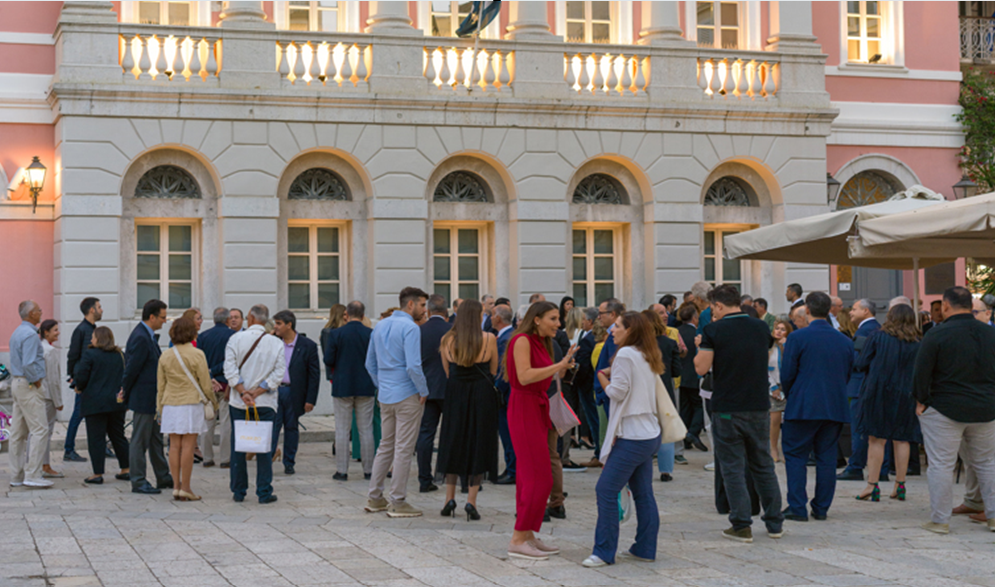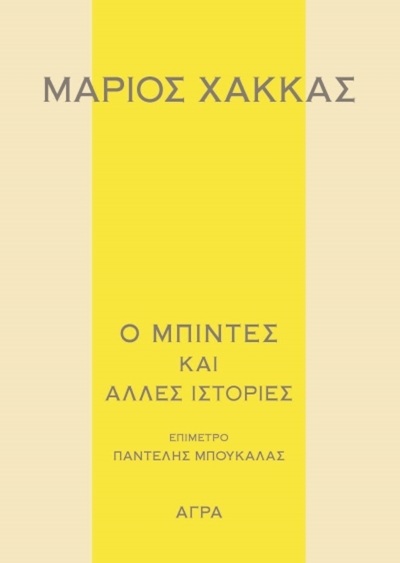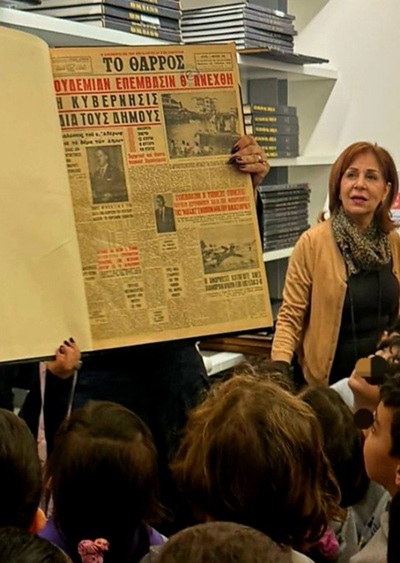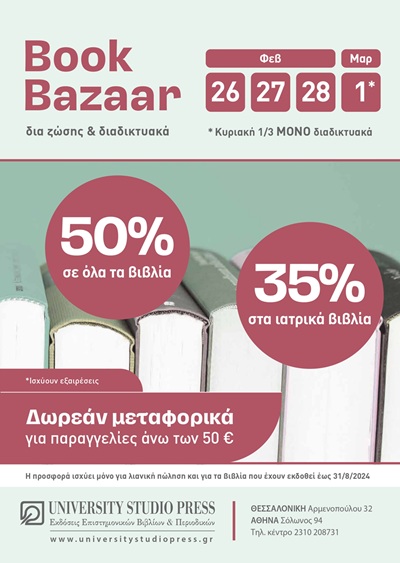
The collection belongs in its entirety to Alpha Bank and traces a historical path from the late 19th century to the present day, covering the fields of painting, printmaking, sculpture, construction and new media. It consists of a total of 145 works by 145 Greek artists and 226 works of art, some of which belonged to the collections of merging banking institutions: Bank of Credit, Ionian Bank and Laiki Bank, in what is now ALPHA Bank. In addition, they reflect the collectors’ perspectives along with the styles, tropes and political contexts of the time.
In the foreword – greeting, Syrago Tsiara, Director of the National Gallery, explains the conditions of sustainability and authenticity of a collection. She approaches the exhibition, among other things, as an occasion for highlighting the individual conditions for the constitution, exercise and reception of artistic practice. Through specific visual approaches of the Collection to Greek women artists, the issue of overcoming the boundaries that historically want discrimination and exclusion between gender, origin and labour is raised.
ALPHA Bank’s art collection is considered one of the 80 most important corporate collections in the world with 5500 works of art from 1880 to the present day. Initiated by the late Bank’s late leader Ioannis Kostopoulos, the collection is introduced to employees and customers through original artworks placed inside the branches.
The oldest example of female creation in the bank’s collective is the oil painting entitled “English Steamship” which dates back to 1893 and was created by Eleni Prosalenti.
The catalogue traces the historical development of women’s artistic emancipation since the end of the 19th century as well as the institutional steps of the corresponding educational reform in order for women to be accepted as equal artistic creators in the newly established state.
One of the most important presences in the collection is the one with two drawings by Thalia Flora-Karabia, who was an “unprecedented social phenomenon” for the early 20th century, with a rich exhibition work on four continents and active participation in events that marked the country, such as the Balkan Wars of 1912-13 and the Asia Minor Campaign of 1921.
In the exhibition WOMEN. Greek Women Artists at the Alpha Bank Collection in Corfu, which will run from 8 October 2024 to 7 September 2025, 46 representative works by women artists are on display.
On the occasion of the publication and in a parallel review of exhibitions on women that took place in 2023 -2024, both at the National Gallery and at the EMST, with the multifaceted tribute to women creators and the question “What if women ruled the world”, the question arises whether there is a gendered quality in art and to what extent the institutional role of institutions and public institutions aestheticize our everyday life and redefine the boundaries of the gendered identity of the creator. In a complex process of emancipation of the very right to communicate and interact through expressive artistic forms of all kinds , the catalogue is a welcome expression of promotion and communication of ideas and values. At the same time, it raises questions why so few women within such a collection and why so few contemporary Greek women artists at a time when the financial size of foundations allows for greater support but also when recent dramatic events, “me too” , gender violence, economic and social exclusion of the country from European and economic integration, immigration issue, climate change, etc. have proven that supporting art in any way is a safe, ‘soft’ form of energy. Awakening, consciousness raising and strengthening social solidarity and empathy.
The role of institutions and public bodies is even more powerful than any other public action of an artist. It is obvious even from this well-designed catalogue that participation in such a collection can spark a remarkable career with potential for recognition from collectors’ circles as well.
The general coordination of the publication was carried out by Dr. Dimitra Tsagari and the scientific editing was carried out by Drs. Despina Tsourgiannis, Georgia Mazi, and M.A. A number of collaborators worked for this special publication under the Bank’s communication and corporate relations department as well as external collaborators.







Leave A Comment